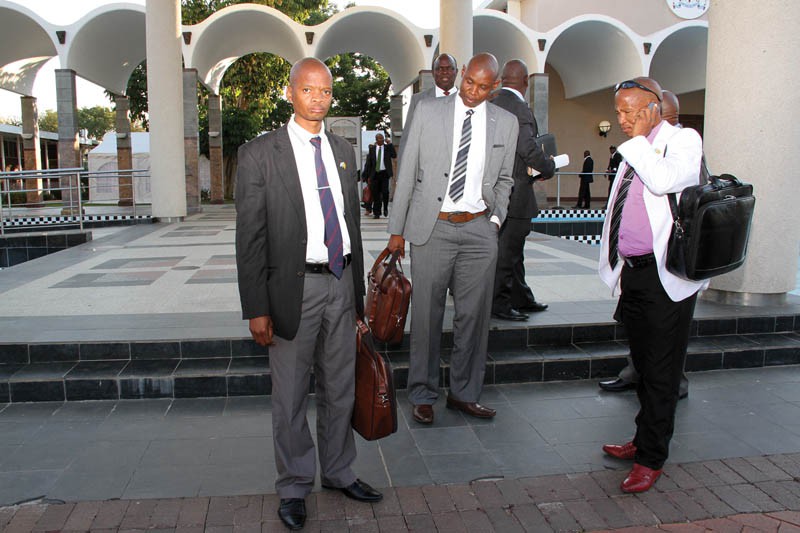Dikgosi call for community radio
Baboki Kayawe | Tuesday June 23, 2015 15:44


Dikgosi agreed with the mover of the motion, Kgosi Maruje Masunga of Masunga that with low Kgotla turnouts due to work commitment, this media could help revive the communication process that used to flow in rural communities. Moreover, the fact that the Kgotla is seasonal has resulted in critical issues failing to be disbursed to communities. To remedy the situation, Dikgosi believe community radio stations could be utilised to disseminate information.
Reiterating the call made by many non-governmental organisations including the Media Institute of Southern Africa, Kgosi Masunga argued before the second meeting of the third seating of the Ntlo Ya Dikgosi, that government had to set up community radio stations for all citizens to adequately dialogue to partake in the democratic process.
“In a democracy and a pluralistic society everyone’s view, opinion and participation in the democratic process is necessary,” Kgosi Maruje said.
The media and communications graduate, Maruje said Botswana as one of the region’s oldest and acclaimed democracies, with pluralistic societies, it was critical to liberate the airwaves for communities to engage through this targeted medium.
Further, he said this could be a vehicle of change in the society through nurturing dialogue. He stressed that true democracies encouraged participation in debates and public opinion, as opposed to just saying they are democracies.
“We have commercial and state broadcasters here, whose programming is packed with national and commercial influence. Community radio stations by nature of being specific to certain communities or groupings, would therefore address issues of relevance, as well as those that are in their agenda,” he said.
Kgosi Maruje added that community radio stations command a homogeneous audience, hence the content or programming could better address pertinent, bread and butter issues, a differentiating advantage that its counterparts lack.
“Commercial and public broadcasters (state media in Botswana case) have a broader and national agenda to deliver on,” he said.
Moreover, Maruje said currently Dikgosi were very pivotal in the running of the country’s affairs, as a result, he argued that this development would enhance governments’ decentralisation process.
He said information and knowledge is key to the attainment of an active and competent citizenry. Kgosi Maruje added that the world was changing hence a need for a change in mindset, and opening up channels for dialogue and information dissemination in languages that people sufficiently understood is necessary.
“In the past, there have been fears of divisions and tribalism whenever community radio stations were mentioned. I believe that when the right people are engaged through Botswana Communications Regulatory Authority (BOCRA) to consider the best model for this country such fears really shouldn’t exist,” he said.
Supporting the motion, Kgosi Mosadi Seboko of Balete said if anything, community radio stations stood to unify the country as the diverse cultures and customs of this nation would be communicated to a mass audience.
Currently, she said peace reigned amidst this diversity and having a medium through which these cultures are promoted and persevered for posterity would bring much unison in this diversity.
“These radio stations will teach us how other tribes do things,” she said.
She said unlike in the past, people no longer attend Kgotla meetings en mass, a development that has presented challenges such as distortion of messages through third parties. She found these radio stations as a better alternative for Kgotla meetings.
Kgosi Colly Cock of Kumakwane also supported the motion, stating that the medium could benefit development as the low turn out for Kgotla meetings meant that important contributions were left out. If community radios were established and used to broadcast such meetings, views and contributions of those absent could be presented via radio call ins or short messaging services.
“The good thing about radio is that it can be tuned in anyway, someone can literary be in a Kgotla meeting just through listening to radio,” said Cock.
Additionally, he said this could advance government initiatives as a platform for the traditional leaders, communities and public officers to engage.
For his part, Kgosi Oreagetse Machilidza of Boteti said these would be vital means to transfer culture to the next generation.
He said language as a fundamental aspect of culture could be preserved through establishing this development.
He blasted government intentions to eradicate the so-called minority ethnic groupings’ languages through failure to license community radio stations despite public calls for their establishment.
“It is the government of the day who opposes the inclusion and usage of other languages. As the status quo is, most people are limited from participating in Radio Botswana 1 programmes since they are told their native languages are not understood by the presenters,” he queried.
He went on to say the biggest mistake the country has made was the categorisation of some tribal groupings as minority, hence implying inferiority, which has lead to immense disadvantages.
“Community radio stations could help promote the culture of the historically sidelined groups, and others in general. This could then boost our cultural tourism sector,” he said.
In response, the assistant minister of Presidential Affairs and Public Administration Phillip Makgalemele said government does not fear embracing any new development. He said this would make a positive contribution towards information dissemination.
As the ministry that houses media, Makgalemele cited several enablers some of which are to be endorsed by Parliament prior to the establishment of these stations. He said legislative and operational frameworks were needed, and that BOCRA does not provide for community radio stations licensing.
“But that does not suggest that amendments cannot be made, and even if those provisions were to be in place there will be need for regulation,” he said.
